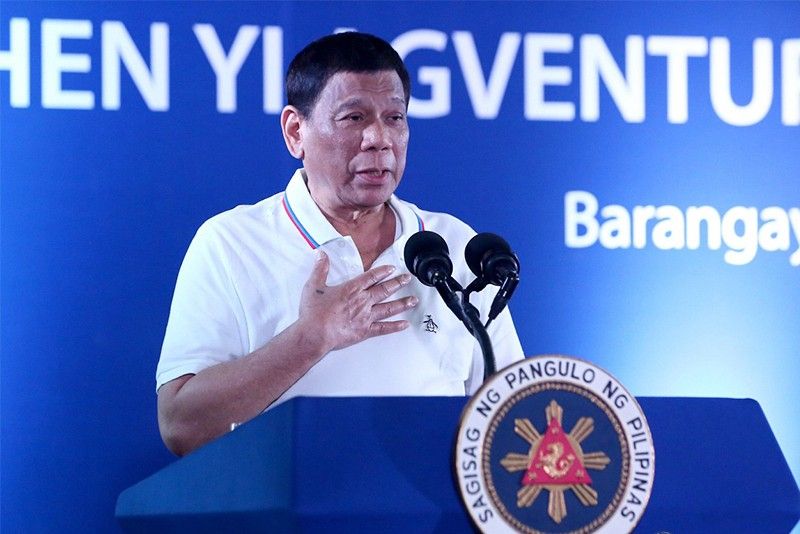Duterte dares US: Declare a war vs China

MANILA, Philippines — President Rodrigo Duterte on Friday dared the United States to declare war against China, which has been increasing its power projection capabilities in the South of China, parts of which is the West Philippine Sea.
In a speech in Leyte, Duterte slammed the US for treating the Philippines as a “bait” and for “egging us.”
“Now, I said the US should send their attack aircraft and warships to China and fire the first shot and we’ll position at the back. Go ahead, go to war and let’s see who will be defeated,” Duterte said in a mix of English and Filipino.
“They said we have a US-RP pact. Okay. Let America declare the war. Let them assemble all their armaments there in South China Sea. Fire the first shot and I’ll be glad to do the next,” he added, referring to the 1951 Mutual Defense Treaty.
“We have a US-RP pact so let’s honor it. Do you want trouble? Okay, let’s do it.”
The Philippines claims parts of the South China Sea within its exclusive economic zone and calls it the West Philippine Sea.
Ties between China and the Philippines soured after the previous Aquino administration filed a case in 2013 with a United Nations-backed tribunal. The ruling, which favors Manila, was handed down a few days after Duterte assumed the presidency.
But China vehemently rejected the landmark decision, which Duterte put on the back burner in exchange for warmer ties and Chinese funding for his administration’s ambitious infrastructure program.
Duterte has been under fire over his apparent refusal to confront China. Critics have recently voiced anger over a Chinese trawler's failure to rescue the 22 Filipino fishermen after what some Philippine officials have called a "hit-and-run" incident.
When Duterte made his first public comments about the June 9 incident, the usually outspoken leader downplayed the sinking and reiterated that his country was not ready to go to war against China.
Although it is not a party to the maritime row, Washington has been infuriating China for repeatedly sending warships close to Chinese-controlled reefs. — Ian Nicolas Cigaral with AFP
- Latest
- Trending

































